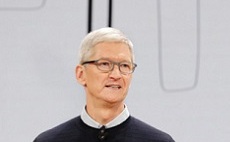More iPhones sold than expected, but company slump continues
Apple has revealed profits of $10.2bn (£6.1bn) for its first quarter of 2014, a period in which it shipped 43.7 million iPhones, up 17 per cent compared to Q1 2013 but down 14 per cent from last qu...
To continue reading this article...
Join Computing
- Unlimited access to real-time news, analysis and opinion from the technology industry
- Receive important and breaking news in our daily newsletter
- Be the first to hear about our events and awards programmes
- Join live member only interviews with IT leaders at the ‘IT Lounge’; your chance to ask your burning tech questions and have them answered
- Access to the Computing Delta hub providing market intelligence and research
- Receive our members-only newsletter with exclusive opinion pieces from senior IT Leaders






















